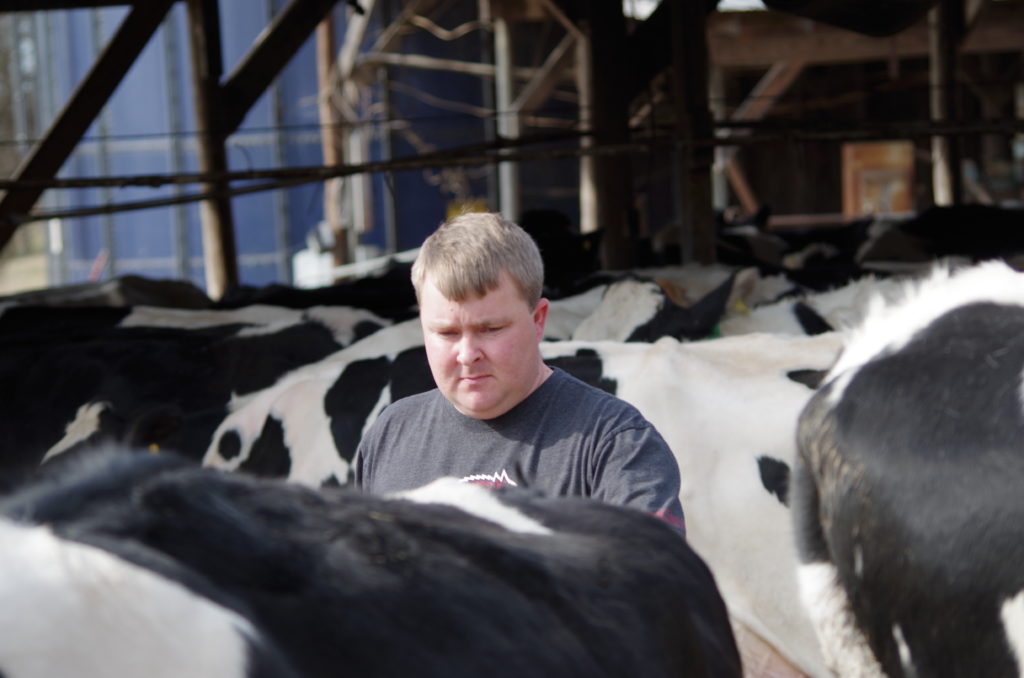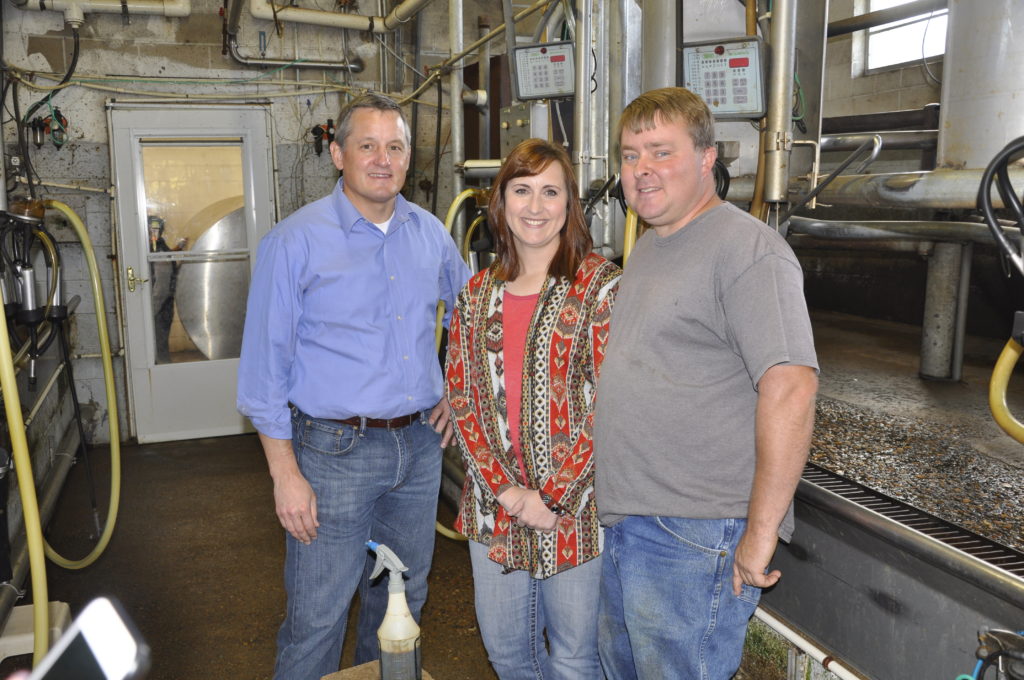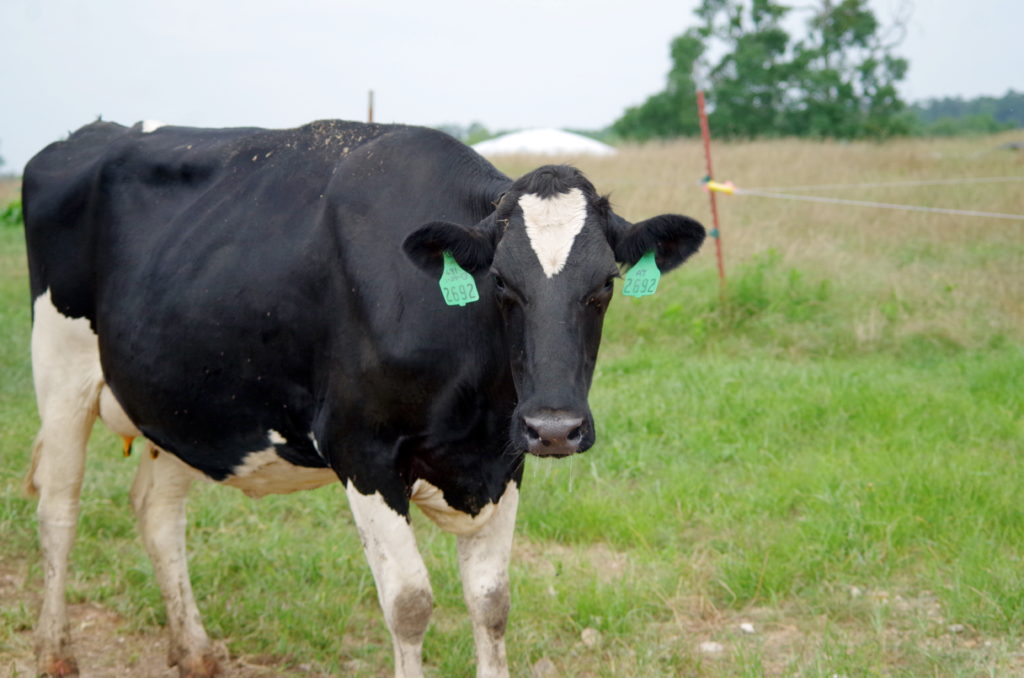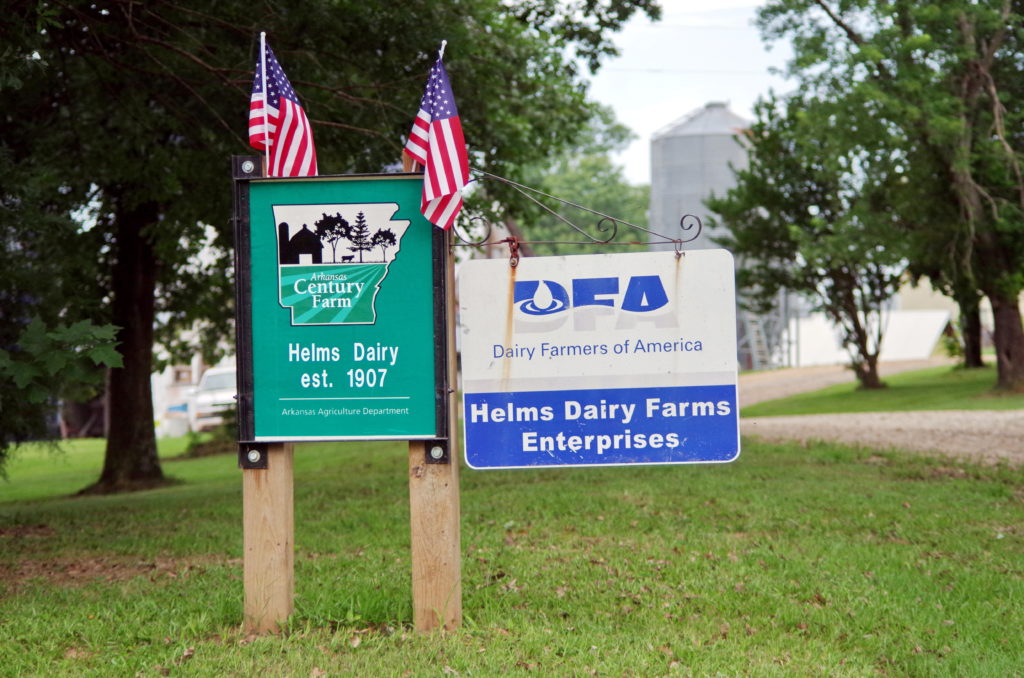
Derek Helms is a dairy and row-crop farmer in Clark County and serves as president of the Clark County Farm Bureau. We recently sat down with Derek during a Farm Bureau Member Appreciation event in Arkadelphia to discuss a variety of topics, including the state of the dairy industry, his involvement in Farm Bureau and much more.
Q: Family-owned dairy farms continue to decline in Arkansas. As a dairy farmer in Clark County how hard is it to keep the farm in operation?
A: It’s tough right now. We are one of only 51 dairy farms remaining in Arkansas. Milk prices are severely depressed. Our cost of production has skyrocketed over the last 10 years. Feed and fuel costs are going back up this year, as much as 50 percent. It’s a struggle to go forward and simply pay the bills.
Q: What must be done for you to remain in business and make a living?
A: We need markets and milk moved out so that the price increases. I can go to the grocery store now and buy a gallon of milk for $1.50. It’s tough to produce that milk at that price. We’re paid right now 13-cents per pound for our milk. You’re looking at roughly 90-cents per gallon for what we’re paid and they’re selling it in the store for $1.50, plus the farmer pays the shipping costs to deliver it to the processing plant. We need people to buy and drink milk, eat cheese and dairy products to help keep us in business.
Q: Isn’t much of the milk sold and consumed in Arkansas today imported from other states?
A: Yes. From West Texas, New Mexico and California. We want to be sustainable and local and provide jobs for the community so that folks in Arkansas will have locally produced milk, ice cream and cheese. Our milk goes to the Hiland Dairy plant in Little Rock. I think they get 3 or 4 loads of milk per day from Arkansas dairies, but they use around 26 loads per day so most of the milk they process is being shipped in from other farms to the north and west of us. And, most of those shipping costs are being paid by the farmer.

Q: I know you and your wife Carlee have been active in leadership roles with Farm Bureau. You are currently Clark County president. What satisfaction do you get from serving this organization and why is it important for you to do so?
A: I love what I do as a farmer and it’s important for us to promote what we do. 15 years ago I started with the Young Farmer and Rancher program and I saw the challenges of getting Farm Bills passed or beating back regulations like the Waters of the U.S. proposal that directly affects farm families and our ability to produce safe, sustainable food. Farm Bureau allows me to advocate for our industry. Not just my farm, but for all farmers who are dedicating their lives to helping feed the world. I must be a voice for the benefit of other farmers who can’t leave their farms and tell our story. I willingly take time away from my farm to educate the public about what it takes to put food in the stores and on their table.
Q: You represented Arkansas a few years ago on the American Farm Bureau Young Farmer and Rancher Leadership Committee. Talk about that experience and what you learned from it.
A: I originally accepted the position when I was single, then later my wife Carlee married into the position before my term was over. It was a great opportunity to meet other young farmers from across the country that face similar challenges that we do. Whether it’s water rights in west Texas or land rights in Utah, some of that is moving into the Grand Prairie where ground water for irrigation is declining. We also got to talk to other young farmers about labor issues and how they’re dealing with that.

Q: Your wife’s family has a legacy of growing peaches in Howard County for decades and now you’ve added that to what you do.
A: Yes, I married into a 4,000-tree peach farm near Nashville. This has given me the opportunity to learn about and see a whole other segment of agriculture and interact with the community because most of their peaches are either sold off the farm or at Farmers Markets in Texarkana, Nashville and Arkadelphia. We interact with consumers directly that way and that gives us the opportunity to tell them about our best management practices and the steps we take to ensure they are getting a wholesome, quality product.
Hear more of our interview with Derek in our recent Arkansas Agcast podcast at arfb.com.

